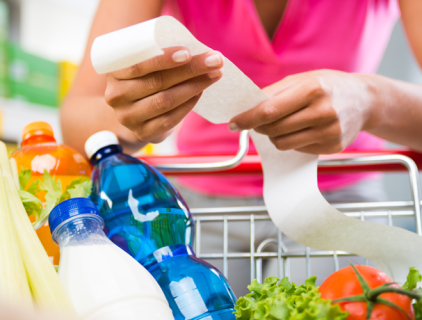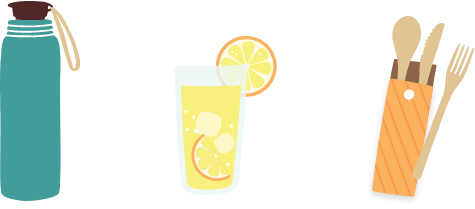Plastic is a health hazard – our choices can prevent harm
Guest Author | 18 April 2023
Plastic pollution is not just a waste issue, it is now known to be a public health issue.
Professor Sarah Dunlop, Head, Plastics and Human Health from the Minderoo Foundation says the links between plastic and detrimental effects on human health are increasingly clear, and projected growth in plastic production brings ever greater urgency to this issue.
Pollution at every stage of plastic
Last month, the Minderoo Foundation in collaboration with world-leading researchers* published an analysis of the multiple hazards that plastic poses to human health and the ocean in the Annals of Global Health. The study also revealed the staggering economic costs of these negative impacts from the extraction of fossil carbon feedstocks through to the chemicals that leach from everyday use and disposal of plastics.
One of the study’s key conclusions addresses the hazardous chemicals used in plastic production. There’s now growing awareness that during use and in disposal, plastics release bisphenol A, phthalates, PFAS and other harmful chemicals, mostly unlabelled.
Around a quarter of the over 10,000 unique chemicals used in plastics are of either high or medium concern to human health and safety. Nearly 40% lack hazard classification and therefore the level of concern is unknown.
How does plastic affect humans?
Exposures to pregnant women, young children and unborn babies are particularly dangerous because these chemicals can disrupt hormones responsible for healthy development. For children, the health consequences linked to plastic chemicals include reduced IQ and respiratory diseases, and for adults – obesity, cancer and decreased fertility in both men and women. Studies have reported that women are more likely to experience reproductive disorders including endometriosis when exposed to such chemicals.
Apart from chemical exposure from everyday plastics, there’s health hazards associated with air and water pollution resulting from plastic manufacturing, beginning with coal, oil, and gas extraction (the source of 98% plastic is fossil carbon). At disposal, the burning of plastic releases toxic gases and metals that are carcinogenic. The polluted ash can leach into the soil and contaminate groundwater.
A clean, healthy, and sustainable environment has been declared a human right, and yet plastic production workers and communities neighbouring plastic production and waste disposal sites are living with hazardous air pollution and contaminated water sources. Plastic production workers are at increased risk of leukemia, lymphoma, brain cancer and breast cancer. Children in these communities have higher incidences of leukemia.
Plastic production results in particulate matter air pollution, which increases risks for cardiovascular disease, stroke, lung cancer and diabetes in adults. In infants and children, it increases risks for premature birth and low birthweight, which are risk factors for chronic diseases later in life. There are also higher risks of stillbirth, impaired lung development and asthma from this type of air pollution.
While in the last decade there’s been a significant uptick in research into plastic pollution and environmental microplastics, scientists acknowledge the need for improved technology and techniques to detect the very small (micro and nano) plastic particles in human tissue.
Plastic toxins—What can we do?
Taking small steps toward plastic-free living are all important when it comes to protecting our health, recognising human rights, and conserving our planet.
To minimise your exposure to harmful plastic chemicals, you can store your food and beverages in non-plastic containers and avoid heating food in plastic. Be aware that fast food served at high temperatures in plastic packaging enables chemicals to migrate into the food. Also, avoid using plastic cups for hot drinks and discard plastic kitchen utensils.
Even though it is difficult to avoid plastic altogether, there are safer options for kitchen products. Glass, stainless steel, bamboo, and wood can be healthier alternative materials for food storage and preparation.
To protect babies and children, choose baby clothing made with natural fibres, and avoid PVC plastic toys or cups. Be careful to avoid PVC (vinyl) ‘wipe clean’ bibs. The plastic images embossed onto babies and children’s clothes can also contain chemicals which leach out.
By choosing reusable products and refusing single-use plastic options we can reduce our impacts.
You can also ask your government representative to review this study for the latest science on the health impacts of plastic, to update chemical regulations and ensure plastics policies are not exporting the problem and contributing to social injustices.
While each of us can embrace changes to our behaviour, our governments should fast-track bans on unnecessary single-use plastics, and work to reduce the complexity and toxicity of plastic. Plastic producer responsibility towards safer and more sustainable operations and products, all the way up and down the value chain, is also vital to a healthier future.
*The Minderoo-Monaco Commission on Plastics and Human Health is a collaboration by 48 international expert authors from multiple institutions world-wide. The study was coordinated by the Global Observatory on Planet Health at Boston College, the Centre Scientifique de Monaco’s Medical and Marine Biology departments, and the Plastics and Human Health team at Minderoo Foundation. It presents a detailed analysis of plastics’ impacts across their life cycle on human health, the global environment, the economy, and vulnerable populations.



